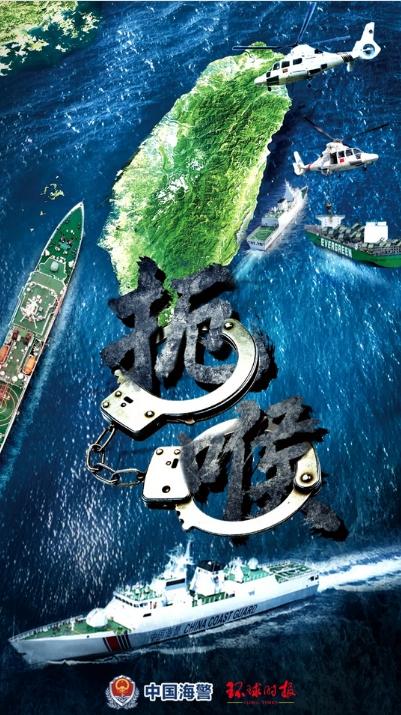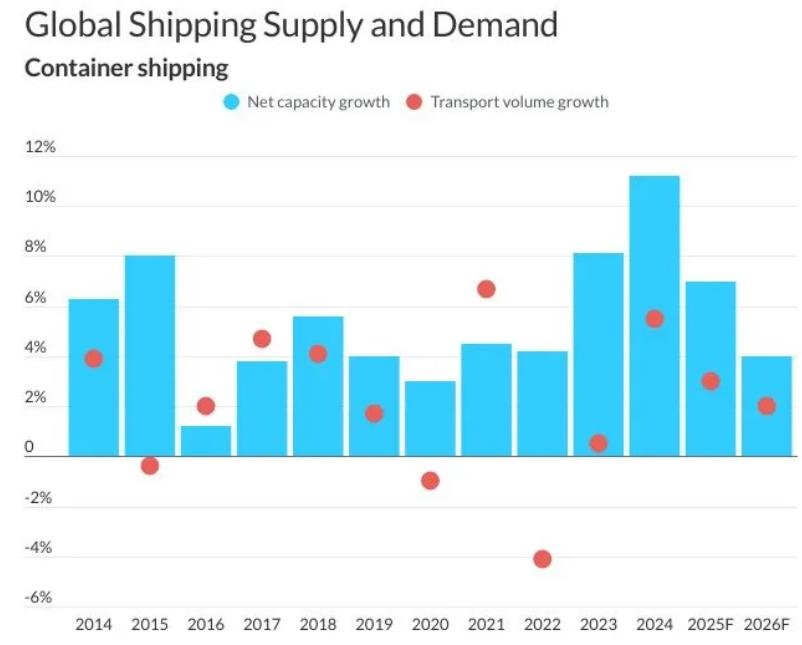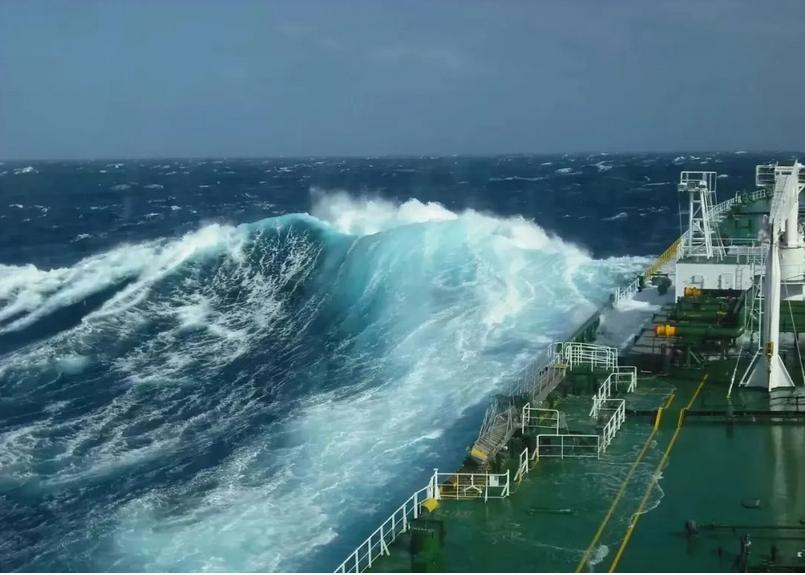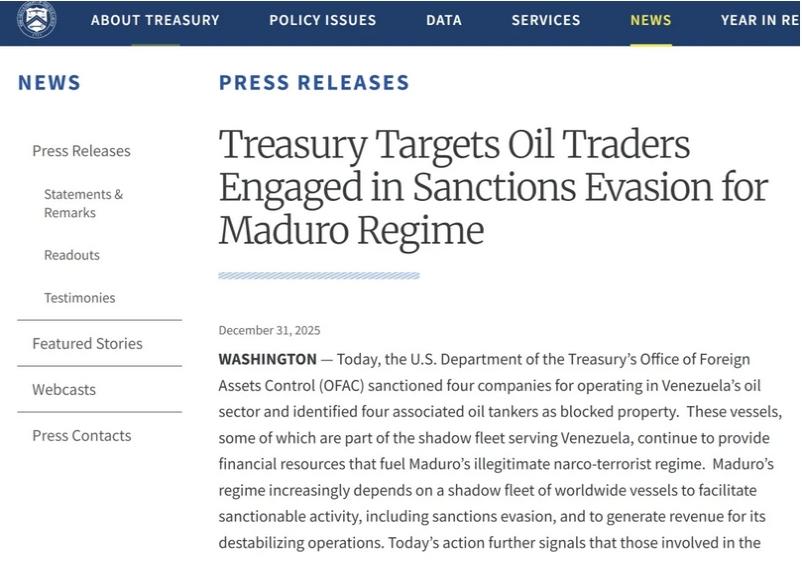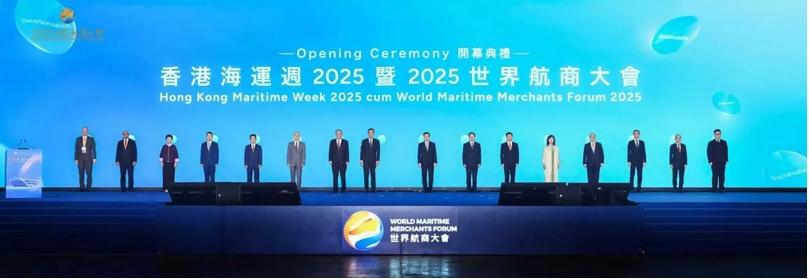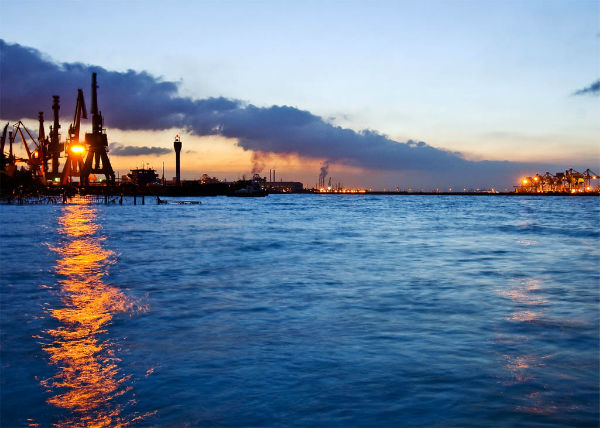
Charter-party (Voyage) - Demurrage - Notice of readiness- Delay in vessel getting into berth – Whether NOR is valid - WhetherCharterers breach - Whether Owners entitled to damages for detention
之前有人问,因为长江封港封航,船舶只能在长江口等泊,而此时泊位并没有船;那么这段等泊的时间应该由谁来承担。如果在没有看到具体的租船合同就下结论,那么势必不够严谨。等泊的时间该由谁来承担,得看合同具体是如何规定的,合同是泊位租约还是港口租约,是否有对延误的事由做了明确的规定,承租人是否作了某些保证?港口封港封航是否是不可抗力条款下已经列明的例外?等等这些都会影响判断。判定这些时间损失的责任归属,得看当事人双方之间的具体的合同的真实及整体解释。
有些承租人会以为港口当局的强制封港封航,比如大雾或者有沉船导致的,这些港口当局的强制性行为可归于不可抗力,因此可从laytime计算中扣除不算。其实不然,除非合同有相反规定,不然仅仅凭类似“Laytime not to count if ForceMajeure occurred”简单的措辞不足以令laytime可终止不算。
在英国法下,法律会对想引援不可抗力条款来免除责任的采取严格的解释,但如果已经在合同条款中明确列明了,语言足够清晰明确,那么不管结局是否荒谬,当事人将不得不接受。不可抗力有三大要素,一是外部的,二是不可预见的,三是不可抗拒的。如果想成功引援不可抗力来免除责任,那么想引援的一方必须负有举证责任。虽然这些港口当局的强制行为是外部的,但不是不可预见的,在多雾季节港口封港封航是可预见的;此外发生沉船需要打捞而封港封航也不是偶然异常事件,此等风险在签约当时就应该被预见。再者,还得去证明不可抗拒,这种不可抗拒性,不是简单地不作为,而是采取了一切符合常识的举措之后的仍然无法作为。
因此,简单地想引援不可抗力来免除责任,基本上不大可能。但如果租船合同已经规定了,只有当泊位被别的船占用的情况下才可以在长江口递交NOR,那么在这种泊位租约下,如果泊位没船,而因为其它原因导致封港封航需要在长江口等泊,那么很显然将由船东自己来承担时间损失。此种情况下的任何延误只是延长了载货航次,在船舶抵达泊位之前,载货航次没有完成无法递交有效的NOR,laytime无法开始起算;承租人可凭借合同条款成功免除责任。
但是,如果租约其它条款作了额外的规定,而承租人此时违反了额外条款?那么情况将不一样。
接下来来看看The“Laura Prima”案。
一、基本案情
NereideS.p.A. Di Navigazione(以下简称“出租人”)在1978年11月22日以Exxonvoy 1969的租约范本将“Laura Prima”轮(以下简称“该轮”)租给Bulk Oil International Ltd.(以下简称“承租人”),执行到利比亚装货到意大利卸的航次任务。
该轮于1978年11月27日凌晨0140抵达利比亚的装货地点,并递交了NOR。然而,因为所有可能的泊位都被其他船舶占用,在6个小时的准备时间过后,改路还是未能靠泊装货。这种情况一直持续到1978年12月6日1630,延误了9天8小时50分钟。
1979年1月8日,程租人以不损害其利益的情况下向船东支付了162,158.22美元的滞期费。然而出租人索赔的金额高达355,451.08美元,最少为307,913.05美元。这些数字之间的差异是由于后者是考虑了装货期间因排压载水和其他活动不计入装货时间导致的。
合同主要条款有第6条及第9条,其中第6条如下:
NOTICE OFREADINESS. Upon arrival at customary anchorage at each port of loading ordischarge, the Master or his agent shall give the Charterer or his agent noticeby letter, telegraph, wireless or telephone that the Vessel is ready to load ordischarge cargo, berth or no berth, and laytime, as hereinafter provided, shallcommence upon the expiration of six (6) hours after receipt of such notice, orupon the Vessel's arrival in berth (i.e. finished mooring when at a sea loadingor discharging terminal and all fast when loading or discharging alongside awharf), whichever first occurs. However, where delay is caused to Vessel getting into berth aftergiving notice of readiness for any reason over which Charterer has no control,such delay shall not count as used laytime.
合同第9条:
SAFEBERTHING-SHIFTING. The Vessel shall load and discharge at any safe place orwharf, or alongside vessels or lighters reachable on her arrival, which shall bedesignated and procured by the Charterer, provided the Vessel can proceedthereto, licat, and depart therefrom always safely afloat, any lighterage beingat the expense, risk and peril of the Charterer.
二、争议焦点
承租人事后认为,他们受到了合同第6条最后一句话的保护。在考虑了这一点之后,该轮仅仅滞期15分钟,而非先前计算的9天8小时50分钟。因此承租人要求出租人扣减15分钟的滞期费341.78美元后退还先前多支付的161,816.44美元。
仲裁员认定承租人依据第9条,在船舶抵达的时候他们将指定及提供一可到达的泊位,因此承租人违反了此责任。仲裁员还认定,该轮延迟靠泊的唯一原因是由于其他船舶的存在而导致没有泊位可靠,这种情况不在承租人的控制之下,因此承租人对此延误无需负责。
出租人认为依据合同第9条,承租人违反了保证条款,得为延误承担责任。因此争议的主要焦点是如何协调,一起来理解这两个条款看似冲突的规定。
三、法官判决
在商事法院审判过程中,当事人双方的辩护律师都表示,合同第6条及第9条必须在整个租船合同的背景下来解释或者将这两条款一起结合起来理解。出租人的代表律师Rix认为,该合同为港口租约合同。Mocatta法官认为,关于这个问题,承租人一方没有什么可以说的,尽管承租人的代表律师Tomlinson提请注意这样一个事实,即在装货港口这个词语边上出现了“one safeberth Marsa el Hariga”。另一方面,Rix指出,合同第1条及第4条涉及在第6条中非常重要的表述“berth or no berth”。Mocatta法官认为Rix的主张是正确的,该合同为港口租约合同。如果在没有明文规定的这种租船合同中将港口拥挤的风险置于出租人身上,那将是非常奇怪的。
出租人的代表律师Rix提出解决这两个条款之间的冲突的办法是最后一句话:合同第6条只适用于阻止装货时间起算,如果承租人已经按照合同第9条已经制定并提供了在该轮到达的时候可抵达的一安全位置或码头或船舶或减载平台。然后,如果发生了某些干预事件造成了承租人无法控制的延迟,例如强制执行禁运或者水深不足,那么第6条的最后一句才适用。
Mocatta法官认为,除非提出这样的解决方案,否则会出现合同第6条的最后一句话,当然也包括港口拥挤的情况下,将剥夺“reachable on herarrival”可以达到的合同效果,并将其引入到The“Angelos Lusis”案中及随后引用的案例中。
承租人的代表律师Tomlinson指出,合同第9条中逗号的作用是让“reachable on her arrival”这些词只适用于船舶或减载平台。Mocatta法官不认为有任何明确的逗号分配及安排,这是一个非常不合理的争论,并没有吸引仲裁员也没有理由。例如,为什么船舶或减载平台是“reachable on her arrival”,但其它安全地方或码头就不需要?鉴于与这一条款非常类似的词语在相当多年的使用中已经使用了各种各样的逗号,Mocatta法官认为合同第9条中“wharf”后的逗号没有任何意义。
在参考了之前先例的基础上,作为一个整体,两条款的冲突,Mocatta法官接受船东代表律师Rix的解释,判装货时间从11月27日的0740开始起算。 承租人不服此判决,提出上诉。
在上诉院,承租人的代表律师Davenport主张,合同第6条规定了现在大型油轮相当常见的事态,并且假定了由于承租人控制以外的原因而延迟进入泊位应该是出租人的风险,而不是承租人他们的风险,就像合同第7条一样,由于船舶的状况或者故障或船舶设施无法在允许的装卸时间内装卸货而造成的任何延误不应该视为装卸时间。合同第6条的最后一句不是在第9条责任下的例外。这是一条规定,在给予了准备就绪通知书后,出于任何承租人无法控制的原因造成的延误不计算使用时间。
Lawton勋爵接受了承租人代表律师的解释,在他看来,Davenport的主张是有依据的,它符合租船合同,使得合同第6条最后一句与第9条相协调一致,允许承租人上诉。
出租人不服此判决,因此该案最终上诉到贵族院。
贵族院的Roskill勋爵首先提及了The “Joanna Oldendorff”案中Reid勋爵关于抵达船的定义,以便确定在港口租约条款下的原则,在递交准备就绪通知书后可以开始装卸货时间起算。以及Diplock勋爵所提出的程租租船合同分为4个连续不间断没有重复的阶段。在Roskill勋爵看来,本案的基本问题是,在现在这个众所周知的Exxonvoy 1969年标准油轮租船合同中,合同第6条及第9条的解释。
Roskill勋爵接着提及了Diplock勋爵在The“Darrah”案中的如下所说,在程租合同下,时间就是金钱;因此各方在合同中规定由于这些原因造成的延误所造成的任何损失是如何分配的,这对双方具有商业重要性。
My Lords, the type of maritime adventure that is the subject of a voyagecharter is exposed to risk of delay in its performance from causes that arebeyond the control of both shipowner and charterer. Under a voyage charter time is money; so it is ofcommercial importance to the parties to provide by their contract how any lossoccasioned by delay due to such causes is to be allocated between them.Among the commonest causes of delay, particularly in recent years, has beencongestion at ports. Vessels have to wait their turn, within or without thelimits of the port, until there is a vacant berth at which their cargo can beloaded or discharged.
Roskill勋爵认为,在判定发生这种财务损失的归属必须回到特定租船合同的真正解释上来。仔细研究上个世纪和本世纪的冗长决策,都表明通过参考被考虑的特定租船合同是否可以被认为港口租约或泊位租约来确定真正的解释的倾向。如果双方没有特别规定,这种方法仍然有效。但是,今天许多租船合同包含作为某种标准形式的一部分,或者作为特别补充包含一些关于财务损失发生率的明确规定,如果因为船舶不得不等待空置泊位而浪费了装载或卸载时间。
My Lords, the determination of the incidence ofthat financial loss must turn, as in the instant appeal, upon the trueconstruction of the particular charter-party into which the parties have entered. Perusalof the long line of decisions both in the last and in the present century suggestsa tendency to determine that true construction by reference to whether theparticular charter-party under consideration can be designated a port or aberth charter. In cases where the parties have made no special provision thatapproach may still be valid. But today many charter-parties contain either aspart of some standard form or as a special addition some express provision asto the incidence of financial loss if time which would otherwise be availablefor loading or discharging is wasted because the ship is obliged to await avacant berth.
Roskill勋爵认为在那些判例中,其中North River Freighters v. H.E. President of
在这个初步意见的背景下,Roskill勋爵转向本案本身。正如已经说过的那样,争议是在Exxonvoy 1969格式的标准油轮程租租船合同下产生的。Roskill勋爵认为有时可以从标准形式的条款变更中发现明显的意图,即偏离特定司法裁决的当事人希望避免的实际效果。但是他没有找到任何帮助来解决跟踪Exxonovy 1969格式的即时问题。其解释必须参照自己的条款规定来确定,而不是参考其一些先前的规定。
My Lords,sometimes it is possible to detect from an alteration of clauses in standardforms an obvious intention to depart from a particular judicial decision thepractical effect of which the parties wish to avoid. But I do not find anyassistance towards solving the instant problem in tracing the lineage of theExxonvoy 1969 form. Its construction must be determined by reference to its ownprovisions and not to those of some of its predecessors.
Roskill勋爵认为该格式由三部分组成,包括序言,第一部分和第二部分。 序言部分和第一部分是空白表格,将细节填入适当的位置。第二部分载有标准条款,编号26,附带提单形式。1978年11月22日在汉堡缔结的目前的租船合同令人瞩目,因为与许多标准形式不同,标准条款完全未经修改,五项特殊条款被并列加入M部分。该部分已经正式完成,其相关规定如下:
C. LoadingPort(s) one safe berth Marsa El Hariga.
D.Discharging Port(s) one/two safe port(s) West Coast
H. TotalLaytime in Running Hours seventy-two sh inc. [that is to say, Sundays andholidays included]
I.Demurrage per day US$33,247.50 . . .
K. Theplace of . . . arbitration proceedings to be London English law to apply.
以及前文提到的第6条及第9条,其中第8条是关于滞期费的规定。
Roskill勋爵简单重复了本案的基本情况,引起目前争议的简单事实如下,1978年11月27日凌晨1点40分,该轮抵达利比亚装货港。船长依合同第6条递交了准备就绪通知书,在同一天07时40分准备时间到期。但是,由于所有可能的装卸泊位都被其他船只占用,该轮不能立即进入装卸泊位。这一直持续到1978年12月6日16时30分左右,大约9天后。出租人声称该轮在1978年11月30日07时40分已经滞期,这是在准备通知期满后72小时,并且直到1978年12月8日19时00分装完货为止,装港的滞期时间为8天11小时20分钟。在此基础上,该轮在抵达她撒丁岛的卸货港Sarroch时遇到了滞期费。,还有一项为期2天8小时30分钟滞期费索赔,装卸港总共造成10天19小时50分钟的滞期索赔,净额为355,451.08美元,此为出租人实际滞期费索赔。在另一种情况下,出租人提出了一个稍微小一点的因违约而被扣留的索赔主张,共计307,913.05美元。承租人声称他们受到合同第6条的最后一句措辞的保护,争辩说所有的装卸港延误都是由于他们无法控制的拥堵造成的。
由此产生的争议在伦敦提交仲裁,两位仲裁员没达成一致意见,首席仲裁员完全拒绝了出租人的主张。仲裁员认定推迟船舶靠泊的唯一原因是因为其他船舶占了泊位,而这是承租人无需负责的,不在承租人的控制之下。
该案来到Mocatta法官面前,在1979年12月12日,博学的法官支持了出租人的滞期费索赔。在Roskill勋爵看来,Mocatta法官很正确地未处理承租人的替代损害赔偿请求。承租人之后向上诉法院提出上诉,在1981年4月2日由Lawton大法官作出的判决中推翻了Mocatta法官的判决并恢复了仲裁员的裁决,与仲裁员所给出的相同的原因,即合同第6条直接针对滞期索赔进行保护,并且实际上是针对违反合同第9条的索赔。法院准许出租人就此判决提出上诉至贵族院。
Roskill勋爵认为当事人双方都提出了精心打印的案例,出租人案件不少于16页21段,承租人的案件不少于19页31段。但是,寻求判定的问题很简单,可能被认为几乎不值得这种辛劳的努力付出。
所有法官都认为出租人对滞期费主张成功Mocatta法官的判决是完全正确的,并且因此上诉应被允许,法院没有邀请律师就违反合同第9条的替代索赔发表意见,如果滞期费主张不成立的话,因为承租人受到合同第6条最后一句话的保护。Roskill勋爵认为,如果滞期费索赔失败,损害索赔是否成功,他对此问题不表示看法。如果问题出现,那么这个问题就必须等待法院判定。
Roskill勋爵认为,Mocatta法官总结了他接受的出租人所持有的论点。合同第6条仅仅在承租人依据合同第9条,在船舶抵达的时候已经指定及提供了一个可到达的安全的位置或码头或船舶或减载平台,才适用及保护承租人阻止装货时间起算。然后,如果发生了一些干预事件,造成承租人无法控制的延误,合同第6条最后一句才适用及保护承租人。
My Lords,in his judgment Mr. Justice Mocatta summarized the argument for the shipownerswhich he accepted as being that cl. 6 only applied and protected the charterersand prevented laytime from running if the charterers, pursuant to theirobligations under cl. 9, had designated and procured a safe place or wharf orvessels or lighters reachable on arrival. Then if some intervening eventoccurred causing delay over which the charterers had no control the lastsentence of cl. 6 applied to protect them.
Roskill勋爵认为,出租人的代表律师RokisonQ.C.为出租人实际上采纳了这一提议,并将其置于他论证的最前沿。同样的观点也许可以用略有不同的语言表达。在合同第6条倒数第二行的“berth”是否是指承租人依据合同第9条下指定及提供的泊位?Roskill勋爵认为,如果确实如此,那么上诉法院的理由就严重错误,出租人的上诉必须成功。承租人的论点涉及到在合同第6条倒数第二行中的“berth”作为“anyberth”,而不是合同第9条下所要求的“designatedand procured berth”。Roskill勋爵认为,本案合同中的条款像其他合同中的条款必须被解释为一个整体,这是不言而喻的,他认为在解释合同第6条倒数第二行的时候不可能忽视合同第9条的开放性措辞。Roskill勋爵所赞成的解释,得到了合同第7条最后一句话的大力支持,凡提及装货或卸货泊位必定意味着“designated and procured berth”,因为它是该船舶将要移至的泊位,其中移泊所占用的时间被排除在装卸时间计算之外。承租人的代表律师Evens,试图摆脱这种解释,争辩说,泊位不必马上可以到底。他说,如果抵达后可以到达,就足够了,只要拖延到达停泊地点并不会挫败租船合同。他试图强调这一论点,指出相关泊位也是安全的。他继续说道,如果在船舶抵达后可以安全停靠,没有令人沮丧的延误,那么泊位并非不安全。通过平等的推理,他声称如果在船舶抵达后没有令人沮丧的延误那么并不构成泊位不可到达。
But, myLords, it is axiomatic that clauses in charter-parties as in other contractsmust be construed as a whole, and I find it impossible to ignore the openingwords of cl. 9 inconstruing the penultimate line of cl. 6; and the construction which I favouris, I think, strongly supported by the last sentence of cl. 7 where thereference to loading or discharging berth must surely mean the "designatedand procured berth" for it is that berth to which the ship will then bemoving, the time occupied by which movement being excluded from the laytimecalculation.
Roskill勋爵认为这个论点基于两个理由不成立。“Reachableon arrival”是一个众所周知的措辞,其含义正如它所说的:如果泊位在抵达时无法到达,除非有相关的保护例外情况,否则保证将被打破。来自安全要求的类比并不能提供帮助。泊位需要具有两个特点:它必须是安全的,并且在抵达时也是可以到达的。
My Lords, in my opinion this argument fails on twogrounds. "Reachable on arrival" is a well-known phrase and meansprecisely what it says. If a berth cannot be reached on arrival, the warrantyis broken unless there is some relevant protecting exception. The analogy fromthe requirement of safety does not assist. The berth is required to have two characteristics: it has to be safe and it has also to be reachable on arrival.
承租人的代表律师Evans自然而然地依赖于第8段对于事实的认定,他声称这一认定是明确的。但Roskill勋爵认为这一事实不利于承租人,除非阻止船舶到达的泊位是由于承租人无法控制的原因,且承租人已经按照合同第9条下的责任指定及提供了该泊位。Evans还试图支持合同第6条最后一句话的解释,他认为,如果任何主要石油公司使用这种格式作为承租人,那么这一判决很少能够保护承租人,因为这些公司很可能会控制所有的装卸泊位,因此,声称任何到达这些泊位的延误都是由于他们无法控制的原因造成的。他表示,目前的承租人处于相对较小的业务范围,没有垄断地位,但在现货市场经营,因此应该更容易享有这一判决的保护。
Roskill勋爵认为,至少对他来说是一个新颖的主张,即解释一个条款如合同第6条可以合法地取决于其中一方的身份。Roskill勋爵认为他将只补充说,这个案件似乎是在下面的法院进行的,因为合同第6条和第9条之间存在冲突需要调节。Roskill勋爵不认为任何这样的冲突,正如他所解释的那样,正确地解释这些条款决不是冲突,他认为这种解释与其他解释是互补的。
My Lords, I would only add that the case seems to have proceeded in the Courts below upon the footing that there was a conflict between cll. 6 and 9 which required reconciliation. With respect, I am unable to see any such conflict. Properly construed, in the manner which I havesuggested, these clauses are in no way in conflict. I would regard them upon this construction as complementary one to the other.
承租人的代表律师Evans还隐约提出了在下级法院中被称为“逗号”的问题,因为逗号两边都带有逗号,“oralongside vessels or lighters reachable”, “on herarrival”,最后一句话只适用于“vessels or lighters”,而不适用于“any safe port or wharf”,这一点在下面没有任何意见,并且在法院的争论中没有明显的吸引力,最终承租人的代表律师Evans觉得只能用这个以支持他的主要论点。Roskill勋爵认为当合同第9条作为一个整体来看,逗号没有任何份量,他无法将这一抗辩点上升到有生命的程度。
最终,Roskill勋爵认为基于他所努力给予的理由,允许这个上诉,恢复Mocatta法官的判决,与博学的法官一致,支持18(a)和(c)的替代裁决。
My Lords,for the reasons I have endeavoured to give I would allow this appeal, restorethe decision of Mr. Justice Mocatta, and, like that learned Judge, uphold thealternative awards in pars. 18(a) and (c) of the special case.
Diplock勋爵,Fraser of Tullybelton勋爵,Scarman勋爵,Brandon of Oakbrook勋爵一致同意Roskill勋爵的判决,出租人上诉成功。
总结:
本案的争议,源自于对合同第6条及第9条条款的不同理解;但贵族院的Roskill勋爵认为,“Reachable on arrival”是一个众所周知的措辞,其含义正如它所说的:如果泊位在抵达时无法到达,除非有相关的保护例外情况,否则保证将被打破。来自安全要求的类比并不能提供帮助。泊位需要具有两个特点:它必须是安全的,并且在抵达时也是可以到达的。他支持博学的Mocatta法官的判决,合同第6条只适用于阻止装货时间起算,如果承租人已经按照合同第9条已经制定并提供了在该轮到达的时候可抵达的一安全位置或码头或船舶或减载平台。然后,如果发生了某些干预事件造成了承租人无法控制的延迟,例如强制执行禁运或者水深不足,那么第6条的最后一句才适用。因此当将合同作为一个整体来解释的时候,并不存在任何这样的冲突,正如他所解释的那样,正确地解释这些条款决不是冲突,而是另一条款的互补。支持出租人的滞期费索赔主张,上诉成功。
涉及“reachable on her arrival”的相关判例,在The“Angelos Lusis” [1964]2 Lloyd’s Rep.28 案中,Megaw法官在其第33页判决书中说到:毫不怀疑合同第6条旨在作为有利于出租人给予他们本来不会拥有的合同权利的规定,并且向承租人强加对出租人有价值的合同义务。如果“onher arrival”这个词具有承租人所声称的意义,那么出租人就什么都没有了:这个规定可能不在那里。除非没有其他意义可以合理地归因于这些词,否则这是我不愿意得出的结论。事实上,它比这更进一步。如果假设在Constantza的港务局的一般要求是仲裁员认定他们在这种情况下的一般要求,那就是,一条船在有可用泊位之前不能进入港口,那么就没有位置是在船舶通常等待轮到装载的港口内。因此,在港口租约下的船舶不能成为这种意义上的“抵达船”,直到实际上已有泊位为止。如果当事各方在第6条中提到“onher arrival”时具有承租人的意思,那么该条款就永远不能运作,因为如果假设,这是在抵达时装货的可到达地点的船舶。
Megaw法官认为可以合理地将其他含义归因于“onher arrival”这个词,毫不怀疑,但这种含义反映了各方的真实意图,实际上也反映了这方面词语的真正含义。当事各方在使用“onher arrival”这个词时,并没有考虑到或至少没有完全和专门的意思,认为港口租约中“到达船”的“抵达”技术含义第二方:他们考虑到她在实际到达的地点,无论是否在港口的财政或商业限制之内或之外,如果船舶是在指定或提名特定装货地点的情况下能够不受阻碍地继续工作。此时,承租人必须提名一个可到达的地方,其中包括承租人有责任确保在该时间点正常进行的船舶能够抵达和占用的泊位。她在第6条款到达的时间是在船舶尽可能远的时候到达的,无论是在港口边缘还是在港口内,在没有承租人提名的情况下,她可以达到不被阻挡,她可以装载的地方。
So here, I have no doubt that the provisions of Clause 6 of thischarter-party:
6.-The Vessel shall load and discharge at a place or at a dock oralongside lighters reachable on her arrival which shall be indicated by Charterers, and where she canalways lie afloat . . .
were intended to be astipulation in favour of the shipowners to give them some contractual rightwhich they would not otherwise have, and to impose on the charterers acontractual obligation of value to the owners. If the words "on her arrival" havethe meaning for which the charterers contend, the owners have got nothing: theprovision might as well not be there. That is a conclusion to which I should bereluctant to come unless no other meaning could reasonably be attributed to thewords. Indeed, it goes further than that. If it is to be assumed that thegeneral requirements of the port authority at Constantza are what the umpirehas found them to be in this case, that is, that a vessel may not enter theport until a berth is available, then there is no place within the port wherevessels ordinarily lie awaiting their turn to load. Thus a vessel under a port chartercould not become an "arrived vessel" in this sense until a berth hadactually become available. It would follow that if the parties intended thewords "on her arrival" in Clause 6 to have the meaning for which thecharterers contend, the clause could never operate, since there would, ex hypothesi, be a reachable placefor loading on the arrival of the vessel.
Here, I think that another meaning can reasonably be attributed to thewords "on her arrival", and I have little doubt but that that meaningreflects the true intention of the parties, and, indeed, the true meaning ofthe words in that context. The parties, in using the words "on herarrival", did not have in mind, or at least did not have solely andexclusively in mind, the technical meaning of "arrival" in respect ofan "arrived vessel" in a port charter-party: they had in mind herphysical arrival at the point, wherever it might be, whether within or outsidethe fiscal or commercial limits of the port, where the indication or nominationof a particular loading place would become relevant if the vessel were to beable to proceed without being held up. At that point the charterers had tonominate a reachable place, which involves that it was the charterers'responsibility to ensure that there was at that point of time a berth which thevessel, proceeding normally, would be able to reach and occupy. The time of herarrival, within Clause 6, had come when the vessel had gone as far as she couldgo, whether to the verge of or within the port, in the absence of a nominationby the charterers of a place, which she could reach without being held up,where she could load.
在The“President Brand” [1967] 1 Lloyd’s Rep.506案中,合同第6条规定如下:
The Vessel shall load and discharge at a place or at a dock or alongsidelighters [-and here come the four crucial words-] reachable on her arrival, which shall be indicatedby Charterers, and where she can always lie afloat, any lighterage being at theexpense, risk and peril of the Charterers. Charterers have the right of [shifting]the Vessel at ports of loading or discharge from one loading or dischargingberth to another on payment of all expenses incurred.
Roskill法官在第349页判决书中说到:Eckersley辩称“reachable”一词必须仅参照根据船舶吃水可达到的来解释。关于这个论点,我认为没有理由对这个单一的形容词进行如此狭隘的解释。作为语法的“reachable”意味着“able to reach”。可能有很多原因为什么不能达到某个特定的泊位或卸货地点。这可能是因为另一艘船正在占据它;这可能是因为船舶的位置和其想去的之间存在障碍;这可能是因为没有足够的水深使她能够到达那里。任何这些障碍物的存在都可以阻止某个特定的泊位或码头到达,并且根据我的判断,如果没有足够的水深使船舶能够穿过距离她所在的地方的距离,则特定的泊位或码头同样不可达那个地方,像有一艘船实质上占据那个地方。因此,根据我的判断,承租人的义务是提名船舶在抵达时可以到达的泊位,如果他们无法这样做,他们就会违背该义务。
Mr.Eckersley argued that the word "reachable" had to be construed byreference only to what was reachable in the light of the vessel's draught. Withrespect to that argument I see no justification for putting so narrow aninterpretation upon that single adjective. "Reachable" as a matter ofgrammar means "able to be reached". There may be many reasons why aparticular berth or discharging place cannot be reached. It may be becauseanother ship is occupying it; it may be because there is an obstruction betweenwhere the ship is and where she wishes to go; it may be because there is not asufficiency of water to enable her to get there. The existence of any of thoseobstacles can prevent a particular berth or dock being reachable and in myjudgment a particular berth or dock is just as much not reachable if there isnot enough water to enable the vessel to traverse the distance from where sheis to that place as if there were a ship occupying that place at the materialtime. Accordingly, in myjudgment, the charterers' obligation was to nominate a berth which the vessel could reach on arrival and they are in breach of that obligation if they areunable so to do.
Roskill法官认为违规而没有人可能有过错,但最终的问题是,这个租船合同方提供的是出租人和承租人各自的责任,如果由于缺水,船舶不能穿过浅滩然后驶向泊位,作为第6条中“reachable on her arrival”4个词的解释问题,答案是,对于时间损失的责任落在承租人而不是出租人身上。
It may be(and I think the present case is such a case) that the breach arises withoutwhat one might call fault on their part but the ultimate question is what doesthis charter-party provide are the respective liabilities of owners andcharterers if the ship cannot cross the bar owing to shortage of water and thenproceed to a berth. My answer to that as a matter of construction of the four words in Clause 6 is that liability for that loss of time falls upon the charterers and not the owners.
在The “Delian Spirit”[1971]1 Lloyd’s Rep.506 案中,合同第6条描述如下:
The vesselshall load and discharge at a place or at a dock or alongside lighters reachable on her arrival,which shall be indicated by Charterers, and where she can always lie afloat,any lighterage being at the expense, risk and peril of the Charterers.Charterers have the right of shifting the vessel at port(s) of loading and/ordischarge from one loading or discharging berth to another on payment of all expensesincurred.
Denning勋爵认为该条款规定承租人有义务(在船舶抵达时)指定船舶可以到达的地点,以便卸下货物。“on her arrival”这个词并不意味着她在技术上属于港口商业区内的“抵达船”。 所有必要的是,她应该已经离开港口准备进入泊位卸货。该条款是为了在船舶抵达港口时保护船东-当她准备进入卸货时- 并且使她不必在外面等待而造成出租人的损失。
参这些判例,如果在租船合同中加入了“reachableon her arrival”的措辞,那么将对出租人提供保护,强加于承租人在船舶抵达的时候指定并提供一可供船舶到达的装卸货位置。如果抵达的时候没有可供船舶靠泊的位置,那么承租人将因此承担责任。
有的人可能会认为,“Waitingtime to count as laytime”也能够给出租人提供同样的保护,但情况并不是这样。在The “Darrah” [1976] 2Lloyd’s Rep.359案中,Diplock勋爵在第366页判决书中说到,贵族院不受上诉法院对“time lost”条款真正解释的约束,如他已经表达的,The “Radnor”案中对“time lost”条款真正解释的解释是错误的。他认为,对于依据港口租约抵达的船舶,装卸时间条款和时间损失条款并不存在冲突,两条款下的计算结果是一致的,两者都无需优先于对方。
My Lords,this House is not bound by the decision of the Court of Appeal in The Loucas Nas to the true construction of the "time lost" clauses in the Genconvoyage charter. I do not think it would be right in dismissing the instantappeal for this House to confine itself to the grounds stated in the judgmentof the Court of Appeal. I have already expressed my own opinion that theconstruction placed upon the "time lost" clause in the cases whichfollowed on The Radnor to which I have referred was wrong and that in thecomputation of time lost in waiting for berth there are to be excluded allperiods which would have been left out in the computation of permitted laytimeused up if the vessel had actually been in berth. So, in the case of an arrived ship under a port charter there is no conflict between the laytime provisions and the time lost provisions. The calculations under both provisions are the same; neither need prevail over the other.
也即说,“Waitingtime to count as laytime”这类条款并不优于合同中其它的装卸时间计算条款,并不冲突;依据装卸时间计算条款该扣除不算的依然得扣除不算。但是如果在“reachableon her arrival”条款下,这是另一种责任问题,一旦承租人无法提供可到达的装卸货位置,所有延误将由承租人自行承担。
现在回到本文开头的问题,在长江口等泊的风险该由谁来承担。如果没有相反规定,合同是泊位租约,泊位空的情况下,那么船舶在长江口仍未是到达船,所有延误将只是增长了出租人独自承担的装货航次或载货航次。如果泊位有船,仍得整体看合同其它条款,是否可以在长江口递交有效的NOR以便可以开始装卸时间计算。如果是港口租约,假若可以递交有效的NOR,但还是得看合同其它条款,才能判断因港口当局强制封港封航所带来的延误风险程度问题。通常情况下,程租人很难引援不可抗力或者以港口不安全为由为试图免除责任;出租人也无法因强制封港封航而给程租人造成的损失而免除责任,但如果在合同中加入了“berthreachable on her arrival”,那么结局将相反:任何因港口当局强制封港封航而导致船舶在抵达的时候无法到达指定泊位,程租人违反此责任,所有延误将由承租人自行承担。
海运圈聚焦专栏作者 Alex (微信公众号 航运佬)

 2018-03-31
2018-03-31 4869
4869 









